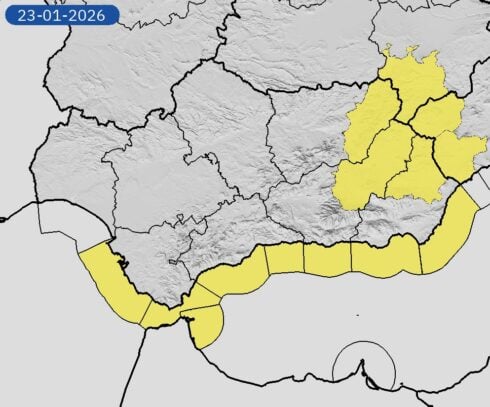EUROPE’S health watchdog has issued a stark warning that record outbreaks of mosquito-borne diseases, including West Nile Virus, will become the ‘new normal’ across the continent – with Spain’s southern regions particularly at risk.
The European Centre for Disease Prevention and Control (ECDC) has announced that longer and more intense transmission seasons for mosquito-carried viruses are now inevitable due to the long-term trend of rising temperatures.
“Europe is entering a new phase where more prolonged, widespread and intense transmission of mosquito-borne diseases is becoming the new normal,” declared ECDC Director Pamela Rendi-Wagner.
READ MORE: Mosquito inspections checking for West Nile Virus in Spain start month earlier than usual
The agency attributes this alarming trend to rising temperatures, longer summers, milder winters and changing rainfall patterns – all creating perfect breeding conditions for mosquitoes in areas where they previously couldn’t survive.
Europe has recorded its highest number of West Nile cases in three years, with the ECDC predicting infections will continue rising until hitting peak season between August and September.
Sevilla province has recorded the highest number of West Nile virus cases in Andalucia, with the villages of Puebla del Rio and Coria del Rio along the Guadalquivir River being particular hotspots.
Outbreaks have also been detected across Cadiz, Huelva, Cordoba, Malaga and Jaen provinces
The health body has now published emergency guidelines covering surveillance, prevention and control measures for West Nile, chikungunya, dengue and Zika viruses, specifically tailored for European countries with little previous experience of these tropical diseases.
“As the landscape of mosquito-borne diseases evolves, more people in Europe will be at risk in the future. This makes prevention more important than ever,” warned Celine Gossner, head of the ECDC’s vector-borne diseases section.
The agency stressed the urgent need for environmentally-friendly mosquito control programmes and urged people in affected areas – particularly the elderly, children and those with weakened immune systems – to use insect repellent, wear long sleeves and trousers, and sleep under mosquito nets.
The Aedes albopictus mosquito, which carries chikungunya, has exploded across Europe in just one decade, spreading from 114 regions to 369 and now present in 16 countries.
This year alone, the continent has recorded 27 chikungunya outbreaks – an all-time record.
West Nile Virus is following a similar pattern, with 2025 seeing the pathogen detected for the first time in central Italian provinces of Latina and Frosinone, as well as Romania’s northwestern Salaj district.
While vaccines exist for chikungunya, there is still no human immunisation available for West Nile Virus, making early diagnosis by healthcare professionals crucial.
The warning comes as Spain has already seen West Nile cases in recent years, with Andalucia’s wetland areas and the Guadalquivir river valley providing ideal mosquito breeding grounds.
Click here to read more Health News from The Olive Press.








